How Studio Drydock created one of the most memorable and welcoming farming sims I've ever played: "Good representation was integral"
Interview | Studio Drydock spill (and sow) the beans on its delightful farming adventure Wylde Flowers
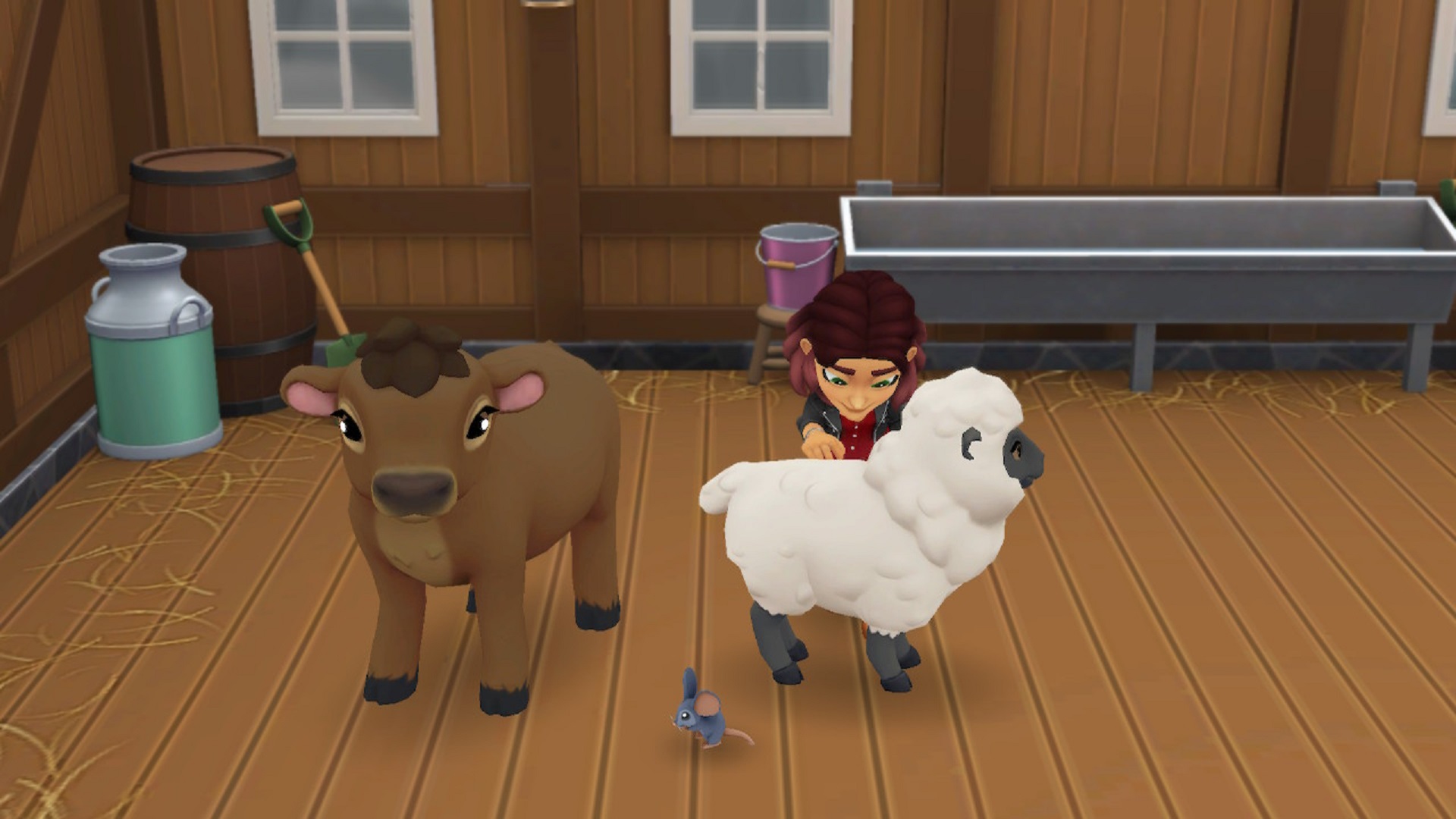
I've played farming sims for as long as I can remember. Growing up on a healthy diet of Harvest Moon titles on GameCube and GameBoy Advance set me on the path to falling head over heels for Stardew Valley when it first released in 2016. Fast forward to today, and we're positively spoiled for choice when it comes to agriculture-shaped adventures that let us grow our own crops, tend to animals, and carve out a quiet virtual space for ourselves. I'm always on the lookout for more, but my current favorite caught me entirely by surprise. With an unexpected amount of depth, a diverse cast of characters, and a unique magical spin, Wylde Flowers is one of the best farming games I've played in a long time. For developer Studio Drydock, creating a farming experience with witchcraft was one of the ways the team hoped it would stand out in a genre that's constantly growing.
"We needed a point of difference to stand out in the farming simulation genre. Witchcraft offered a lot of fun elements to play with for one of our core game goals – telling a really good story," creative and managing director Amanda Schofield says of the initial concept. "Throughout history, magic has often had a close connection with the land and our game harnesses that. The player grows and collects plants, herbs and other produce for their witchcraft, just as witches and herbalists have done for hundreds of years. There were also a lot of opportunities to ease your daily farm life – chores and tasks are made easier through spells and potions as well as ways to spice up the story with other magical things like changing the seasons, transforming into your cat familiar, or even causing mischief."
Finding Fairhaven
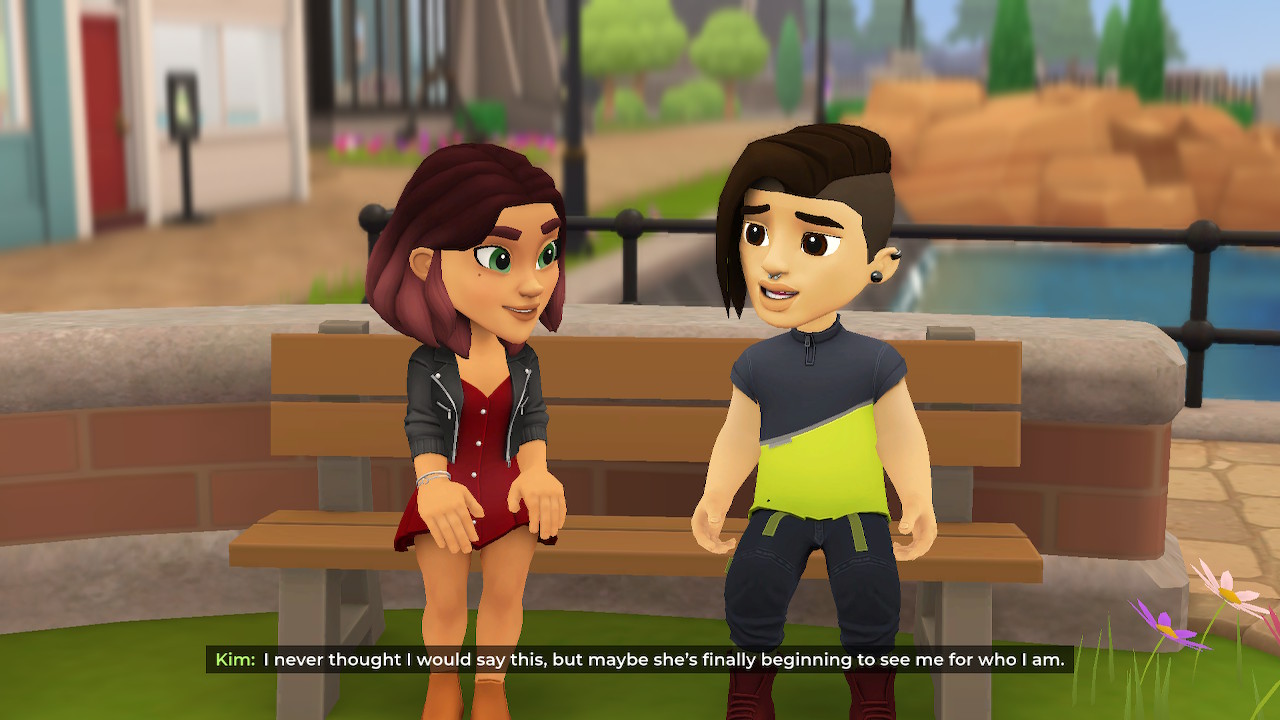
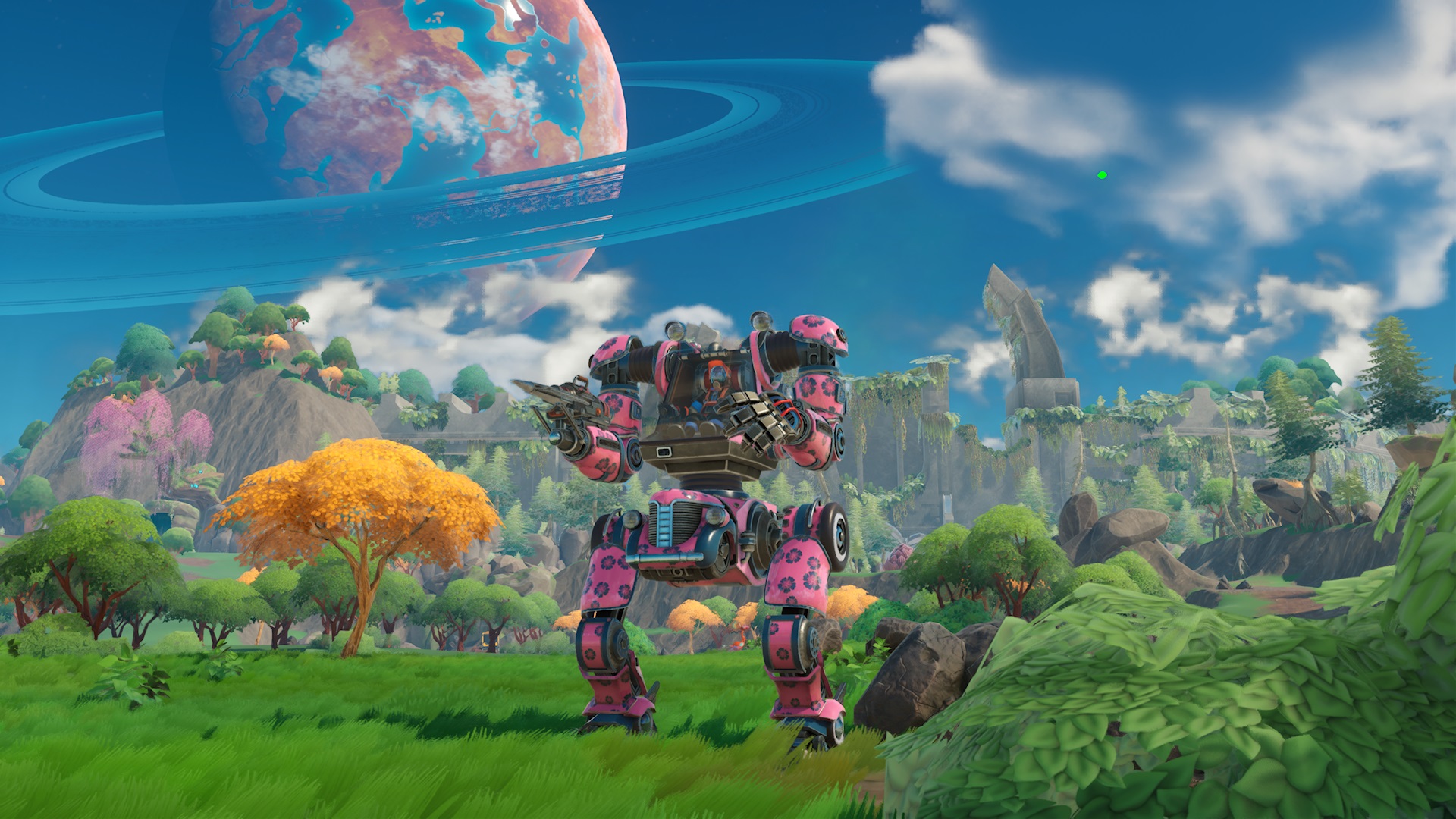
Lightyear Frontier review-in-progress: "The mech offers a novel, refreshing approach to the farming sim genre"
In Wylde Flowers, you take on the role of Tara as she moves to the seaside town of Fairhaven to help out on her grandmother's farm. With a series of quests to complete, you spend time getting to know the community, growing crops, and working to expand the family farmstead. But that's not all. As you soon discover, Tara's family has magical ties and you soon join a coven and learn the ways of witchcraft. I love the way it blends the classic features of farming sims with witchy magic. With crafting, fishing, caring for animals, and tending to the farm among the activities you can get up to, you also brew up potions and cast spells to make handy enchantments that speed up crafting times, yield more crops, or even change the weather.
As Schofield explains, the team actually got the idea to focus on witchcraft while watching an election in the UK – during which a group tried to hex one political party in a hopeful bid to prevent them from winning. As a result, they were taken by the idea of magic in modern settings, and the concept for Wylde Flowers was born. But witches and magic also feeds into one of the key themes of the story: prejudice. "We kept our world cozy by taking the route of exploring this through witchcraft and magic, she says. "Historically witchcraft has been associated predominantly with women – with people being suspicious and threatened by powerful women doing things they don't understand."
While the witchcraft side of Wylde Flowers certainly makes it feel more novel and unique when it comes to the farming sim genre, the adventure is also home to an engaging story with a satisfying sense of progression baked in. As you follow Tara's journey in Fairhaven and help her develop her witchy skills and the farm, you'll uncover a lot of secrets hiding within the town, and get swept up in various events and scenarios throughout each season and of every passing in-game year. I was surprised by how invested I became in Tara's story, and a large part of that is due to the community of the town. With a hugely diverse cast of characters with their own distinct personalities and stories to tell, every line of dialogue is brought to life by voice actors, and it's such a joy to get to know all of the residents.
"It was definitely a team effort", narrative director Desiree Cifre says of crafting the story. "Amanda wrote short bios for most of our townies and the dialogue for our proof of concept. When I joined the team, I fleshed out those bios, added some new characters, and wrote some of Fairhaven’s lore and an outline for the whole story. Then Elizabeth [Ballou] joined and together we pitched quests and wrote all of the dialogue for the game – we launched with over 220,000 lines (this is longer than Moby Dick), which is a lot for just two writers!"
"Then we were really lucky that the Halp Network helped us cast an amazingly talented bunch of voice actors to bring the dialogue to life," Cifre continues. "Hearing some of these actors read the words we had written was truly a pinch-me moment. After launch, we welcomed two new wonderful writers, Jhenne and Nyasha, and they pitched and developed our new resident, Eury, and have helped us continue the Wylde Flowers story with new DLC content. We also had amazing help from our localization partners in shaping how these stories were fulfilled across different languages."
Sign up to the GamesRadar+ Newsletter
Weekly digests, tales from the communities you love, and more
Welcome visit
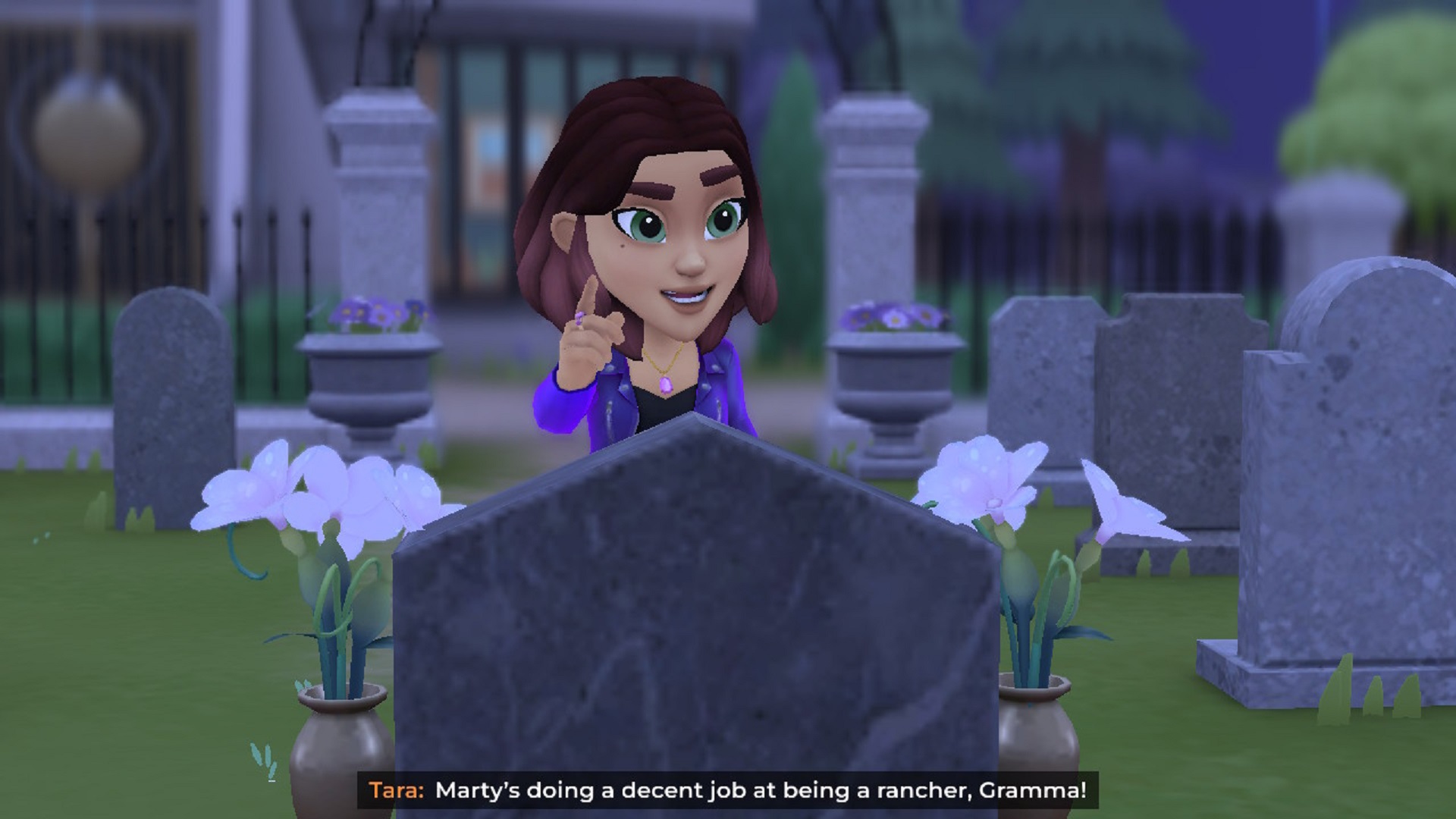
"Wylde Flowers is undoubtedly the most inclusive farming game I've played"
As it turns out, Schofield is also a long time lover of simulation games and Harvest Moon holds a special place in her heart. And with over a decade of experience working with The Sims franchise, she had been wanting to make a game in this space with a deeper narrative. But having people on board who weren't as well versed in the life sim genre also opened up the way to seeing it from a fresh perspective – which led to the addition of one of the best features in Wylde Flowers: Unlimited inventory space.
"I also think it was just as important that we had members of the team who hadn't played all the life sim games I had," Schofield says. "It certainly wasn't my idea to use an unlimited inventory – the genre always has bag upgrades and that was what I thought we’d do – but when Alex [Holkner, technical director] said it seemed a bit overwhelming and not a super fun part of the game, it was so clearly the right way to go! It's easy to fall into the rhythm of how things are, instead of how they should be. The variable time settings happened the exact same way. People looking at the genre with fresh eyes."
Wylde Flowers is undoubtedly the most inclusive farming game I've played. Not only is the cast diverse, with fantastic LGBTQIA+ representation, but there are also thoughtful touches such as vegan alternative options, or different ways to sell your animals (if you so wish). I immediately felt like Wydle Flowers was welcoming me and letting me shape my own farm-shaped fantasy as I got lost in Tara's story. For Studio Drydock, many of these features came about from a desire to put representation at the forefront of the experience and make it feel true to life.
"A lot of our decisions come through one of our key goals as a studio – to represent as many different kinds of people as we possibly can," Schofield says. "An aspect like the vegan tags were driven by that as well, but also hit on another goal about us bringing the life simulation genre a little closer to feeling like the real world. We needed to do that to make our stories feel more relatable, so we were looking for ways to exhibit that in the world, too. Having a butcher where players can trade their animals for meat was part of that."
"Meat comes from animals, so if you raise animals and also cook meals, it felt like a great opportunity for players to confront the decision they're really making every time they eat meat. No judgment! It was just a novel idea that a game can make them confront for themselves with no wrong answer," Shofield adds. "To balance that, we needed to let them live a life where they choose not to eat meat and the vegan options are there to support that play style. It's not entirely possible to play the game vegan as there are some required fishing quests, but we try to keep it out of the main story as much as we possibly can."
With 30 diverse characters making up the cast of Fairhaven, the multicultural seaside town feels so rich and alive, and it's clear from my time playing Wylde Flowers that a lot of care and attention went into the setting and features to make it feel authentic and inclusive. Time and again, I caught myself thinking that this is just the kind of farming adventure I really needed when I was growing up, but even now, it feels so meaningful to have a game like it in a genre that's so dear to my heart. For the Studio Drydock team, representation really has been such a vital aspect of every part of the process when it came to making Wylde Flowers.
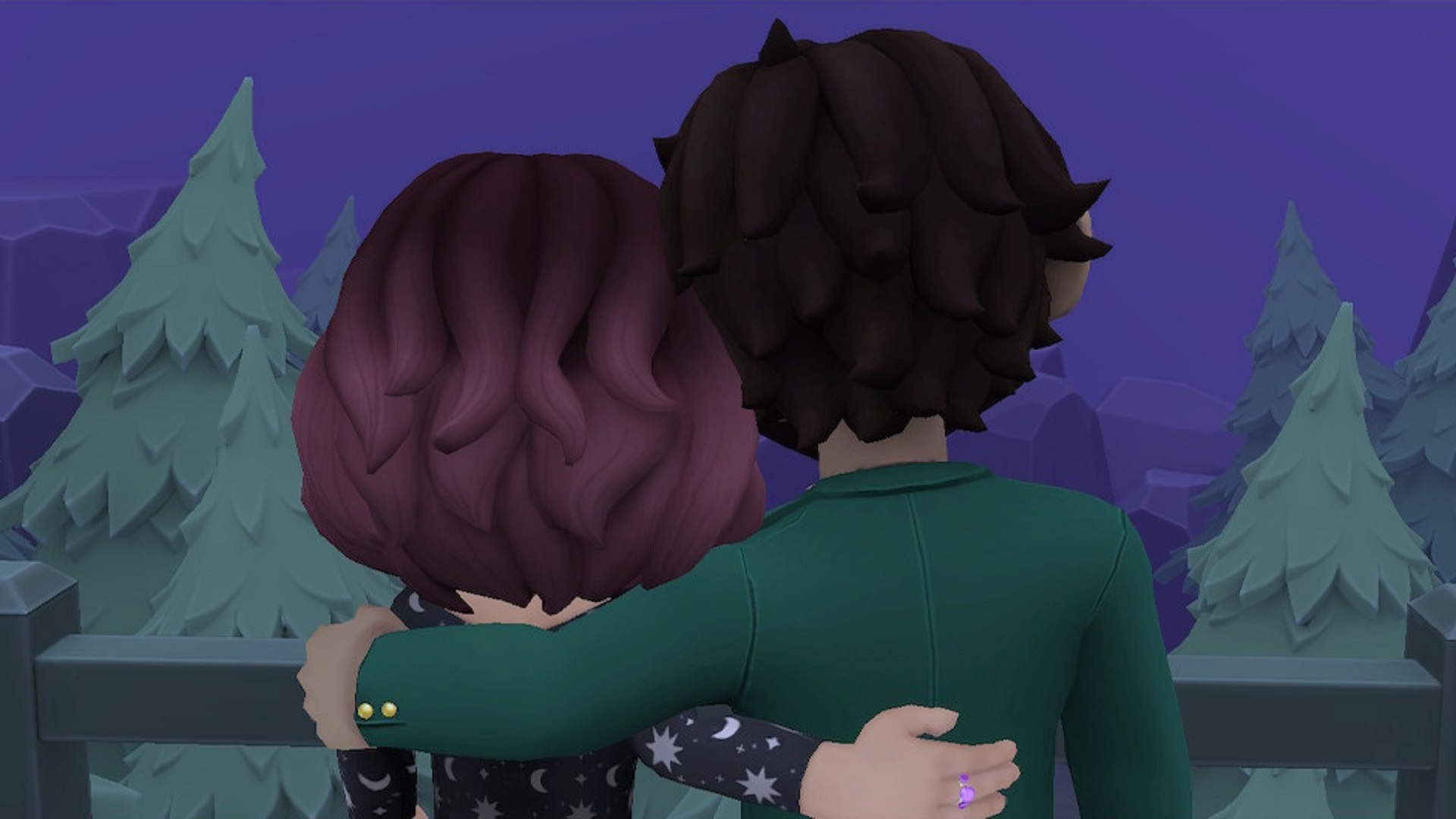
Good representation was integral in the making of Wylde Flowers. "In my opinion, entertainment, especially the immersive kind, has a responsibility to show by example how the world could be," Schofield says. "We wanted to fill Fairhaven with interesting and unique people from all over the world, and to have all kinds of folks to see themselves in our characters. This representation extends to areas like our wide selection of cooking recipes.
To make sure our characters felt right – we worked with a wide range of consultants with lived experiences, which helped us. Alongside this, our casting for voice actors was key. It was a joy for roles like Kai, voiced by Brent Mukai, to give the actor his first role able to authentically represent his experiences growing up in Hawaii."
"But the surprising thing for me was how it impacts every aspect of game development. We worked with some incredible translators through Testronic who helped us to navigate the language constraints of all the many languages we translate into. In some cultures, the use of non-binary terminologies haven't entered the mainstream, and so encouraging our translators to use that language helps to make it mainstream a little at a time."
Love farm games? Here's how Story of Seasons: A Wonderful Life brings back a classic with a heartwarming twist

I started out writing for the games section of a student-run website as an undergrad, and continued to write about games in my free time during retail and temp jobs for a number of years. Eventually, I earned an MA in magazine journalism at Cardiff University, and soon after got my first official role in the industry as a content editor for Stuff magazine. After writing about all things tech and games-related, I then did a brief stint as a freelancer before I landed my role as a staff writer here at GamesRadar+. Now I get to write features, previews, and reviews, and when I'm not doing that, you can usually find me lost in any one of the Dragon Age or Mass Effect games, tucking into another delightful indie, or drinking far too much tea for my own good.


